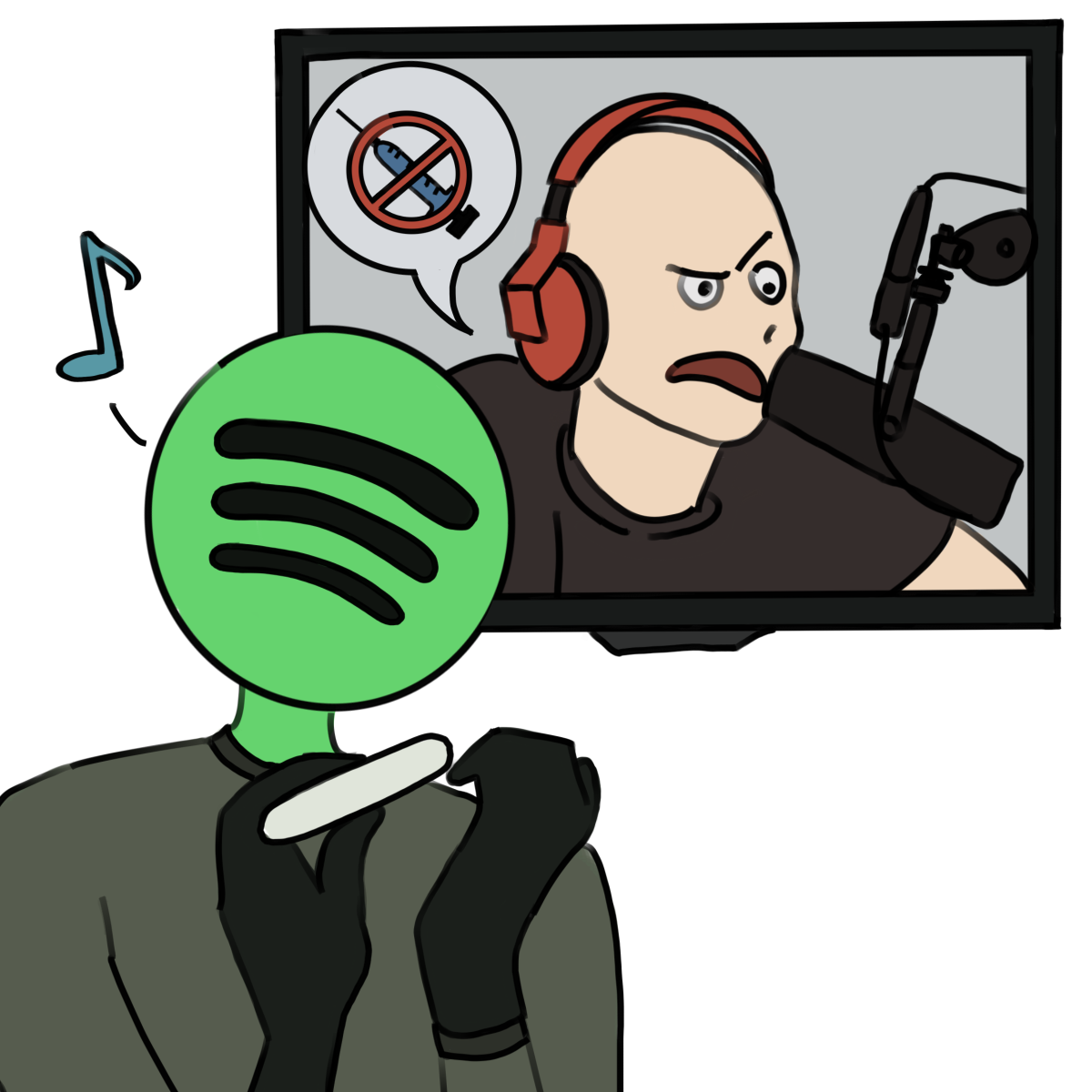There’s a war on misinformation, and music is caught in the crossfire.
Artists Joni Mitchell and Neil Young have pulled their music from Spotify due to the company’s lack of action against podcaster Joe Rogan’s vaccine-hesitant comments. Spotify has since deleted over 100 episodes of the “Joe Rogan Experience” and applied warnings on some episodes that feature misinformation. However, Spotify’s actions haven’t brought Mitchell or Young back to the platform.
This situation raises some interesting questions: If Rogan broke his deal with Spotify, how much would a deal with another publisher be worth given the potential backlash? How much action should a publisher take against misinformation on its platform? What are the social implications of stratifying entertainment based on disagreements?
These questions are important for society to answer, but frankly, I don’t care about them. At least, not yet. Not while artists are pulling their music off my favorite streaming platform.
I only listen to a handful of songs by Young and Mitchell. I can handle going to YouTube to listen to “Big Yellow Taxi” the couple of times a month I want to listen to it.
However, I fear that more artists may soon remove their music from Spotify. I shudder to think of a dystopian future in which I’m forced to use Apple Music.
Spotify needs to resolve this issue before more artists remove their music.
One course of action is to get Rogan to tamp down his most controversial vaccine opinions. Rogan laid the groundwork for this option in an Instagram live video where he said that he will work to balance “controversial viewpoints” on his podcast.
Though Rogan said he is willing to make changes, enforcing that may be difficult for Spotify. Rogan was already a controversial figure before the vaccine saga. He expressed at the time of signing with Spotify that he was aware of potential censorship and that his deal would protect him from it.
Censoring Rogan would only serve to anger him and his fans. If Spotify were to censor Rogan, executives should prepare for a protest consisting of 22-year-old gym bros smoking elk meat and doing ayahuasca outside their headquarters.
The other option Spotify has is to cut ties with Rogan entirely. This option could be incredibly expensive; given the aforementioned outspokenness of the “Joe Rogan Experience,” it’s not hard to imagine a pricey buyout clause.
Ending the deal this early is likely financially unfeasible and risks huge potential backlash from Rogan fans. We would be looking at a March-on-Washington-sized protest of guys lifting free weights and showing each other videos of chimpanzees fighting gorillas. There would be a world record set for the number of times the words “that’s interesting” were said in a day nationwide.
Spotify is in a tough position, with seemingly no easy way out. Unless of course there’s a Spotify employee reading this article with access to Rogan’s contract and a paper shredder.
Spotify’s best option financially may be to continue issuing content warnings and watch a coalition of smaller artists and those past peak popularity leave the platform. After all, small departures will not significantly affect the company’s bottom line.
However, this could change as more artists pull their music. Spotify is a music app first and a podcast app second. That position becomes untenable when a podcast actively harms the music side of the business.
To preserve its standing as the go-to music app, Spotify should consider harsher actions against Rogan. Executives should do what must be done to preserve the music in their catalog.
If they don’t, I might start to reconsider the idea of downloading Apple Music.
Frank Kidd is a 20-year-old mass communication junior from Springfield.
Opinion: Spotify should take more serious action against Joe Rogan to save its music catalog
By Frank Kidd
February 4, 2022
Joe Rogan cartoon





